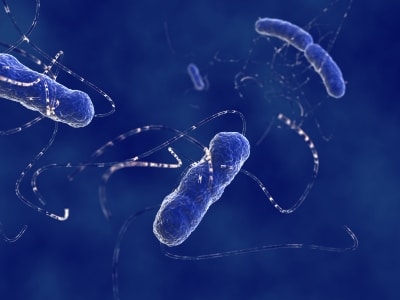 Is Obesity Caused by Gut Bacteria?
Is Obesity Caused by Gut Bacteria?
There’s growing evidence that obesity is linked to an imbalance in gut bacteria. What’s fascinating is that there are 10 trillion cells in the body, but there are 10 times as many, or 100 trillion microbes that live on us or in us. These microbes include bacteria, fungi, viruses and protozoa and collectively are called the microbiome. These microbes can be found on the skin and in the nasal passages, mouth, gut, and vagina.
These microbes are health friendly providing many benefits. Their biggest role is keeping our immune system nice and strong. Approximately 70% of our immune system is found in the gut. These microorganisms also help produce vitamins and natural drug products that seem to protect us from the bad micro-organisms.
To illustrate the impact of microbes and health fecal transplants are now being done to treat patients suffering from Clostridium difficile that causes severe diarrhea and ishighly infectious and resistant to antibiotics. In a small study published in the New England Journal of Medicine reported that fecal transplants were more successful in treating C. difficile than antibiotics. (We won’t go into how these fecal transplants are performed).
The Link Between Gut Bacteria and Obesity
Several recent studies done in both laboratory animals and humans suggest that an imbalance in gut bacteria may play a role in obesity. In a nutshell, when the proper balance of gut bacteria is restored both animals and humans lose weight.
It is now known that bariatric or weight loss surgery changes the makeup (in a good way) of gut bacteria and this alteration in gut bacteria is felt to be responsible for about 20% of the weight loss seen from weight loss surgery.
It’s postulated that “good” bacteria eat some of the food in the gut, and in exchange protect the immune system from the “bad” bacteria and microbes. The “good” bacteria may produce natural drug products that kill the “bad” bacteria, and also appear to communicate with natural killer T-cells of the immune system.
Studies Linking Gut Bacteria and Obesity
A study from the University of Maryland School of Medicine revealed the identification of 26 species of human gut bacteria linked to obesity and metabolic diseases likes insulin resistance, diabetes, increased blood pressure, and elevated cholesterol.
Another study published in Journal of Clinical Endocrinology & Metabolism demonstrated that individuals with elevated levels of the microbe called Methanobrevibacter smithii were more likely to have increased body fat.
A more recent study published in National Academy of Sciences that low levels of Akkermansia muciniphilia are linked to obesity. This microbe digests mucous in the gut. A muciniphilia appears to improve metabolism by functioning as a signaling molecule that helps to control blood glucose levels and protecting against harmful microbes.
The relationship between obesity and gut bacteria started to be studied in 2005 when researchers from Washington University in St. Louis discovered that the 2 main gut organisms in mice were the same as in humans, Firmicutes and Bacteroides. They discovered that fat mice had higher proportions of Firmicutes while thinner mice had higher levels of Bacteroides.
Many of the studies mentioned here involved taking gut bacteria from thin mice and “transplanting” them in obese mice and vice versa and discovered that thin mice get fat and fat mice get thin giving more strength to the thought that gut bacteria are linked to obesity.
We believe that keeping insulin levels down is the key to weight loss with exercise and hormone optimization playing critical roles in achieving healthy body compositions. But for some patients those steps not enough. Perhaps an imbalance in gut bacteria holds some of the answer for those patients where nutrition, exercise, and hormone balance is not enough.
